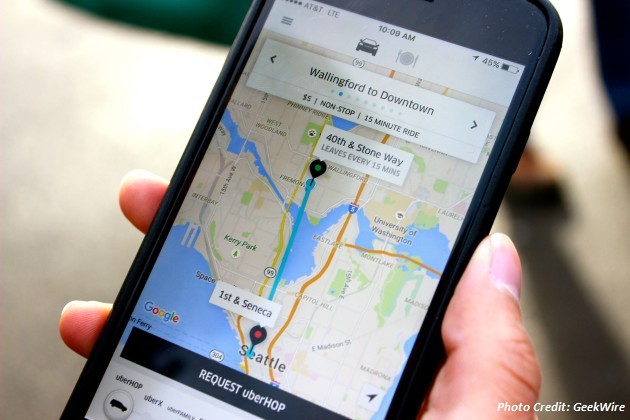In a ranking of the best cities to start a new business, tax-planning startup GoodApril awarded Seattle the #2 spot based in large part on the state’s nonexistent income tax.
But Mitch Fox, co-founder of GoodApril, warns taxes are just one of many factors that influence where businesses locate and whether that business will be successful.
One of those factors is the cost of doing business.
Employers in Seattle pay the fourth highest minimum wage of any city.
Seattle is one of just five cities (and one state) that mandate employers provide paid sick leave to their workers, at employers’ expense.
Now Seattle Mayor Mike McGinn is making a stand against a new against a new business opening in Seattle unless the company agrees to pay its workers more.
Popular supermarket chain Whole Foods is planning to open a new store in West Seattle. Mayor McGinn says he won’t support the non-union store opening unless the new jobs the store will create pay more than the company’s current nonmanagement average of $16.15 per hour, plus health benefits. Whole Foods starts hourly employees at $11.00 per hour, and wages can go up to $29.00 per hour. That doesn’t include the wages of store leadership.
McGinn doesn’t specify what he thinks Whole Foods should pay its workers, just that it needs to be a “meaningful increase” over the current average wage of $16.15 per hour plus benefits. McGinn further declares that if Whole Foods wants his support, the company needs to “open up their books” to prove the company “provides equal pay and benefits to other grocery stores.”
Of course, this is all just posturing on McGinn’s part, he holds no actual power to stop the new Whole Foods. Only the City Council can make that final decision, which hinges on whether the City will grant the grocery store exclusive use of an adjacent alleyway that is public property.
Regardless of the City Council’s decision with Whole Foods, McGinn warns the grocery store won’t be the only target. “I’m setting a new standard here,” he said.
Clearly McGinn doesn’t plan to stop with Whole Foods. And even if McGinn is not reelected, it seems unlikely the policy under his successor will be any different. Last month the grocer’s union, United Food and Commercial Workers Local 21, which is opposing the Whole Foods development, asked candidates whether they would “oppose new developments that contain a low road non-union workplace as an anchor tenant?”
McGinn challengers Peter Steinbrueck, Ed Murray and Bruce Harrell all answered “yes.”
If such wage demands become part of Seattle’s policy, it will most certainly increase the cost of doing business in the city, which in turn would likely impact Seattle’s standing as the second best city to start up a business. Having a mandated minimum wage of more than $16 per hour when the #1 (Austin) and #2 (Boulder) ranked cities are at $7.25 and $7.78, respectively, and the lowest ranked city (San Francisco) mandates a minimum wage of $10.55, won't help Seattle's standing in future rankings. Even our state's lack of an income tax will likely not be able to make up for such disparity.



